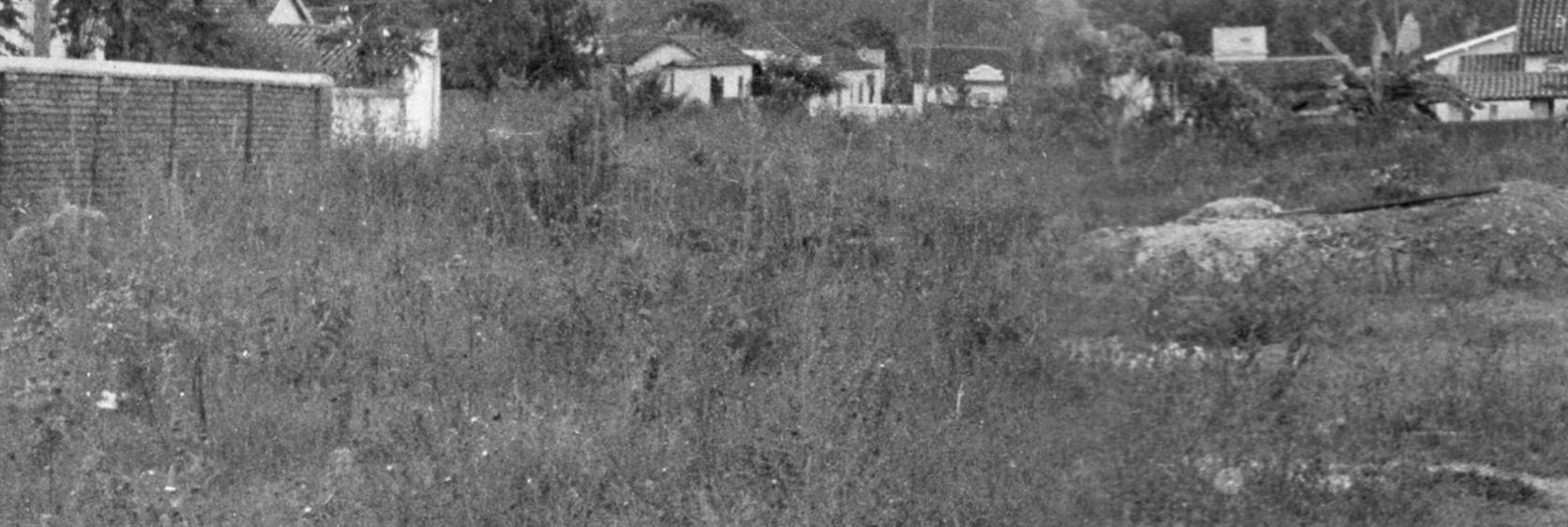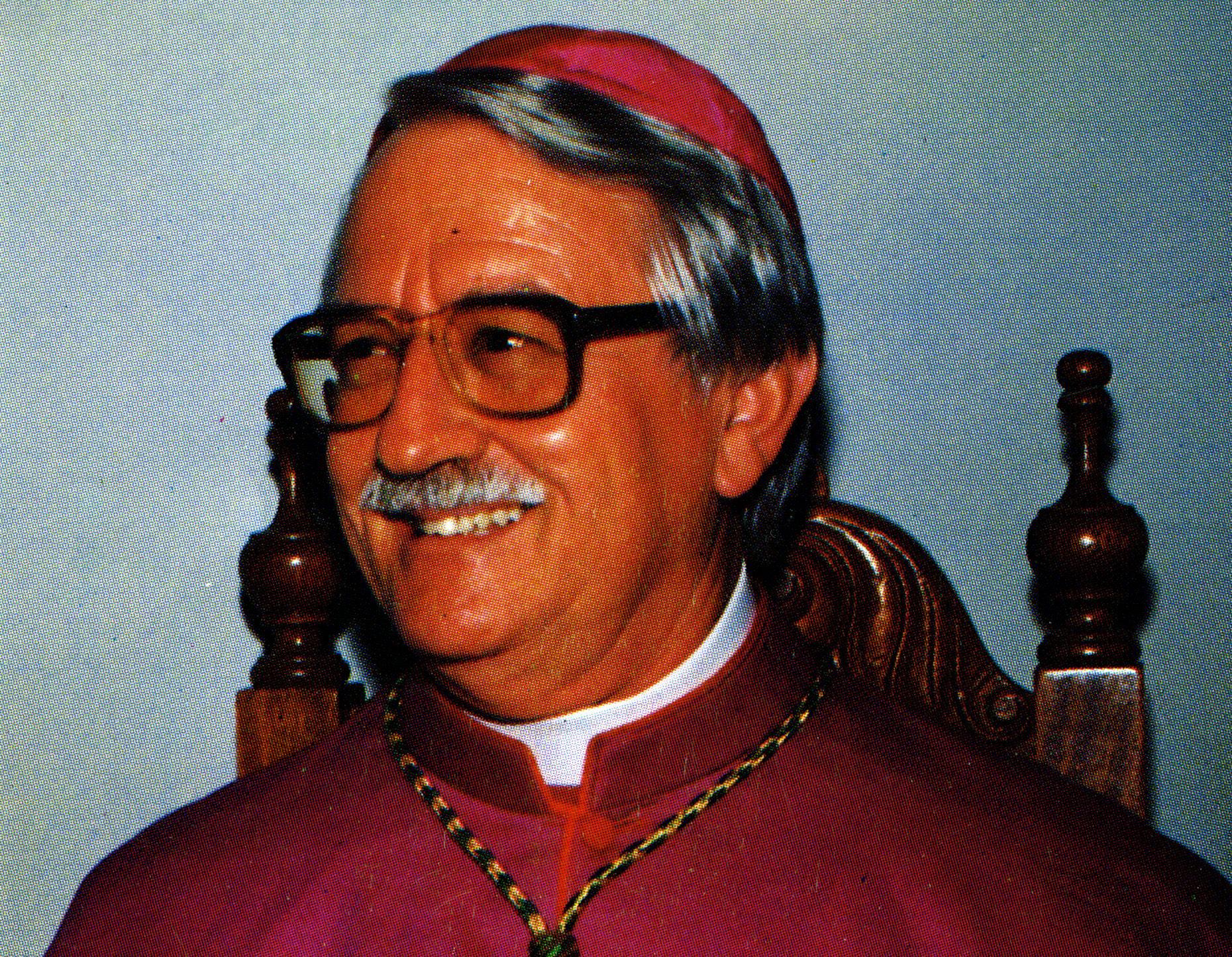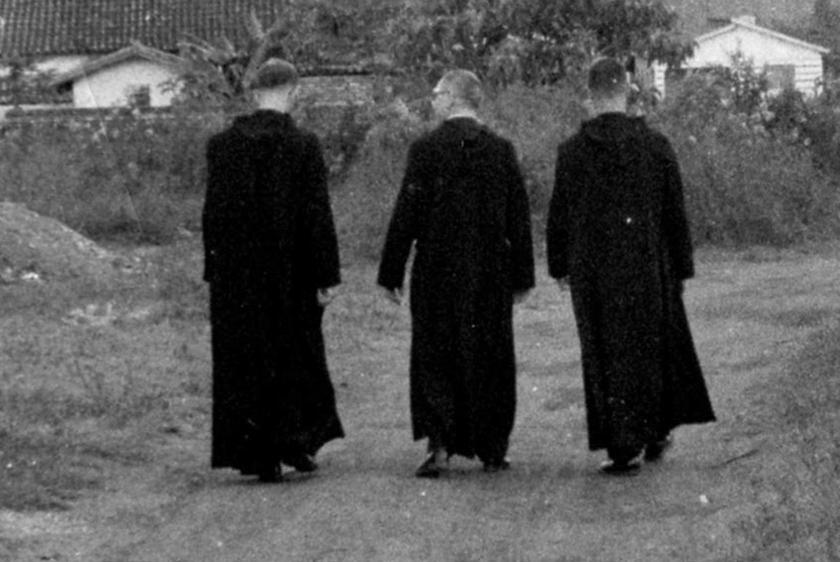
5 minute read
From the Abbot
Trusting in the Lord
Our confrere, Bishop Herbert Hermes, would tell the story of a Brazilian day in 1990 when he received a letter from Pope (now Saint) John Paul II asking him to be the bishop of the Prelacy of Cristalândia in the state of Tocantins in Central Brazil, more than a 16-hour drive from our monastery in Mineiros. Bishop Herbert would tell how he fled to the chapel to be with the True Presence of Christ in the Blessed Sacrament, and how he poured out his soul to his Lord, “How could this be asked of me?” “Lord, why?” He told of how those many hours spent with Christ in the chapel that night would turn those questions that were tumbling about in his mind and heart into an exclamation: Fiat – “Yes!”
This fiat spoken by Bishop Herbert was the same fiat spoken by Mary to the Archangel Gabriel after which the Holy Spirit descended upon her. It was the same fiat spoken by Peter to his Lord, “Master, to whom shall we go? You have the words of eternal life” (Jn 6:68). Having sweat blood, it was the same fiat spoken by Jesus in the Garden of Gethsemane before he would give over his life to his Father for our salvation. It was a fiat spoken from the seed of vulnerability – “How could this be?” “Lord, save me!” “Father, let this cup pass.” “Lord, why?” We are reminded by Jesus, the Son of God, that there will be hardship and maybe even persecution, but there will also be abundant grace and eternal life (cf. Mk 10).
When we face difficulties in our lives, uncertainties, when we find ourselves in a place where we become very vulnerable beings, maybe even feeling a little “dumped on” by God, what is our reaction? From where in our interior does that reaction come? Think of the parable of the sower where Jesus explains that the seed is the Word of God and the different places where the seed falls are the various conditions of the heart (Lk 8). There is the roadside, the rocks, and the thorns, and then there is the good soil – the good soil being a heart that is “generous and good.” What is it that makes good soil good soil? Minerals and nutrients, water? Of course, but what is most important is the cultivation of the ground, allowing the soil to be softened and oxygenated – to bring in the lifegiving gift of the Spirit. Jesus is saying that a heart left fallow, left idle, left uncultivated, left unguided by the Spirit will not produce in generosity and goodness.
We can’t negate the fact that the rocky, roadside, and thorny areas do exist in our hearts and lives, and they produce real feelings and emotions. Through our desire for conversion we work to cultivate the heart, making it good, fertile ground; yet we must at the same time consider how we respond to the harvest that comes from those difficult areas of our lives. Conversion is an ongoing process in which we will do battle for our entire lives. There will be parts of our lives that will surrender to virtue more easily than others. To cultivate our hearts is to truly take on those difficult areas – the thorny, the roadside, or the rocky. If we are unable to go into those fractious places of our hearts, to truly take them on, failing to work that soil we encounter there, we block the opportunity for God’s grace to flow into those places of our hearts, and into our lives.
In my blood is a mission calling...
- bishop herbert hermes
Do not be daunted immediately by fear and run away from the road that leads to salvation. It is bound to be narrow at the outset.
- rule of st. benedict, prologue: 48

the Bishop Herbert Hermes Legacy Fund
I think of Bishop Herbert. What if? What if when he looked into his heart that night in 1990, having received Pope John Paul II’s request, what if he would have avoided addressing the anxiety he found there, what if he had said, “I’m not going there to address those fears, anxieties, and emotions.” God only knows, but a people who so loved their shepherd in the Land of Crystals (Cristalândia) may never have gotten to know the gentleness of that heart. What if our most profound encounter with God is found in our deepest descent into the conversion of our heart? That place where we really don’t want to go, yet we know it is there to that place that we must go. It is that place that may take us the entirety of our earthly lives to turn into good soil, yet it is that place where Christ will be revealed most intensely to us. Isn’t that faith? To know that there, in our chief struggle, is found God’s presence and grace that will abound all the more. “How could this be asked of me?” “Lord, why?” Fiat!
The life of our confrere, Bishop Herbert, signals to me a man who had a deep trust in the Lord. Not so much that he didn’t have his difficulties, doubts, and persecutions, but that he first and foremost knew where to turn when those difficult moments, those uncertainties, and those persecutions arose, and that when he went there, he knew whom he would encounter. The Bishop Herbert Hermes Legacy Fund provides for the missionary efforts of the monks of St. Benedict’s Abbey. This fund has been established in honor of Bishop Herbert’s outstanding years of service at St. Joseph’s Priory in Mineiros, Brazil, as a Bishop in the Prelacy of Cristalândia (Brazil), and his service to the poor. It is because of your support that the prayer and work of the monks of St. Benedict’s Abbey are possible; thank you for your generosity.

To make a contribution to the Bishop
Herbert Hermes Legacy Fund, see the envelope included with this issue of Kansas Monks.
For more information please contact us: info@kansasmonks.org or call 913.360.7908









